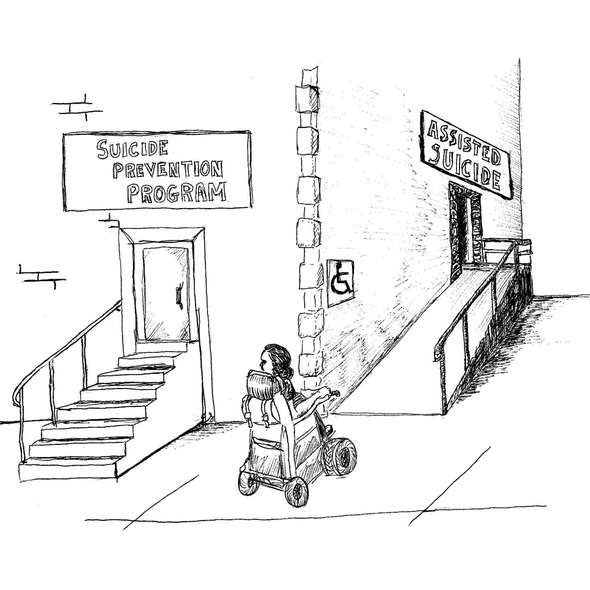Groundbreaking study links ‘assisted dying’ to an increase in suicide rates
 Media Release Euthanasia Free NZ 7 October 2015
Media Release Euthanasia Free NZ 7 October 2015
Some advocates claim that the legalisation of physician-assisted suicide (PAS), also known by the euphemisms ‘assisted dying’ and ‘end of life choice’, could lead to a reduction in total suicides and delay suicides that do occur. Until recently these claims had not been tested by research.
A groundbreaking study published in this week’s Southern Medical Journal counters these claims. The study examined the association between the legalisation of assisted suicide and state-level suicide rates in the United States between 1990 and 2013.
It concluded that the legalisation of physician-assisted suicide is associated with a 6.3% increase in total suicides (including assisted suicides) and not at all associated with a decrease in non-assisted suicides.
“This suggests either that PAS does not inhibit (nor acts as an alternative to) non-assisted suicide, or that it acts in this way in some individuals but is associated with an increased inclination to suicide in other individuals,” the researchers concluded.
In the New Zealand context a 6.3% increase in suicide rates would represent an additional 35 deaths, based on the 2014-2015 statistics.
“I’m not at all surprised by the study’s findings”, says Renee Joubert, Executive Officer of Euthanasia-Free NZ. “Assisted suicide laws communicate the message that the deliberate ending of one’s life is an acceptable solution to life’s problems.”
“There is essentially no difference between suicide and ‘assisted dying’, apart from the number of people involved in the act. Suicide is a person ending their own life without help from anyone else. Assisted suicide, by definition, is a person ending their own life with the help of someone else. Both result in premature death.
“The slogans employed to justify ‘assisted dying’ also apply to suicide. Suicidal people may also feel they are ‘suffering unbearably’ and without hope. They may also feel it’s ‘their body, their choice’ and that they want to ‘choose when to die’. They may also feel they are exercising their ‘right to die’. Indeed, rights apply to everyone, regardless of health status or age.
“’Assisted dying’ slogans are counter-productive to our quest to lower the suicide rate in New Zealand,” says Ms Joubert.
The Health Select Committee is currently investigating the legalisation of ‘assisted dying’ within the wider context of suicide. More information about how to make a submission is available at suicideinquiry.nz.
People who are thinking about ending their own lives, or who are concerned about someone else, are encouraged to phone 0508 TAUTOKO (0508 828 865).
ENDS






